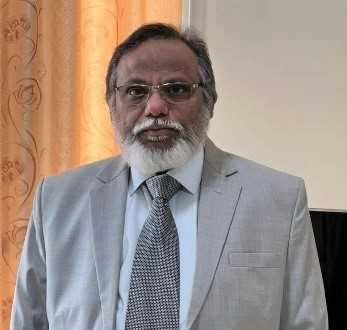In a world that often measures success by grand achievements, it’s easy to feel discouraged if we’re not leading revolutions, inventing groundbreaking technologies, or making headlines. However, the wisdom in the saying, “If you cannot do great things, then do small things in a great way,” reminds us that impact isn’t always about scale—it’s about dedication and excellence in every action we take. Even the smallest efforts, when performed with sincerity and commitment, can create ripples of change that extend far beyond what we can see.
The Power of Small Actions
History often celebrates monumental events, but behind every great movement are countless small, deliberate actions that build the foundation for success. Consider the story of Rosa Parks, whose seemingly small decision to remain seated on a bus in Montgomery sparked a civil rights movement. Though her action may have seemed minor at the moment, its significance grew as it inspired others to demand justice.
Similarly, Mahatma Gandhi’s philosophy of ahimsa (non-violence) started with small acts of defiance against injustice, like making salt from seawater during the Salt March. These small yet bold actions eventually led to India’s independence.
In everyday life, small gestures also hold the power to transform lives. A simple smile, a word of encouragement, or an act of kindness can uplift someone going through a difficult time. For example, a teacher who takes time to inspire and guide struggling students may not receive instant recognition, but their influence can shape future leaders, doctors, and scientists.
Excellence in the Everyday
True greatness is not about performing grand gestures but about doing what we can with passion, integrity, and diligence. When we put our best effort into even the simplest tasks, we cultivate a mindset of excellence.
Consider a barista who meticulously prepares each cup of coffee with care, ensuring consistency in taste and presentation. Their customers not only enjoy the drink but also appreciate the warm experience, making them likely to return. Contrast this with someone who sees their job as unimportant and rushes through the process, producing poor-quality coffee. The difference lies not in the task but in the approach.
Another example is a janitor who works at a hospital. To some, cleaning may seem like an insignificant job, but by ensuring that the hospital is sterile and well-maintained, they play a critical role in preventing infections and saving lives. Their attention to detail and commitment to excellence make a difference, even if they don’t receive public recognition.
Steve Jobs, the co-founder of Apple, famously emphasized the importance of excellence even in unseen details. He insisted that the inside of a computer should be as beautifully designed as the outside, even though most users would never see it. His dedication to perfection in small details helped Apple become a globally admired brand.
The Ripple Effect of Small Acts
When we commit to doing small things with great care, we create a ripple effect that can influence others and inspire positive change. Consider the story of James Harrison, an Australian man known as the “Man with the Golden Arm.” For over 60 years, he donated blood regularly, saving more than 2.4 million babies from a rare disease. His individual contributions, though small in isolation, added up to an incredible impact.
Another example is the Japanese philosophy of kaizen, meaning continuous improvement. It encourages making small, incremental changes to enhance productivity and quality. Companies like Toyota have successfully used kaizen to revolutionize their industries by focusing on small yet meaningful improvements. This principle can be applied to personal growth as well—reading just a few pages of a book daily, exercising for ten minutes a day, or practicing gratitude regularly can lead to significant personal transformation over time.
Creating a Legacy Through Small Acts
Some of history’s greatest figures didn’t start with grand ambitions but instead focused on doing the little things right. Mother Teresa didn’t aim to change the world in one sweeping action: she simply started by helping one sick person at a time. Over time, her acts of kindness expanded into a global humanitarian movement.
In the business world, Sam Walton, the founder of Walmart, began with a single store and a strong commitment to customer service. His emphasis on small efficiencies and customer satisfaction turned his business into one of the largest retail chains in the world.
Even in personal relationships, small actions like regularly expressing appreciation, being a good listener, and showing patience can strengthen bonds and create lasting connections.
Conclusion
True greatness isn’t always about the scale of our achievements but about the dedication we bring to the smallest of actions. Whether it’s a smile that brightens someone’s day, a well-done task that makes a difference, or an act of kindness that inspires others, our small efforts can have a profound impact.
Instead of waiting for a grand opportunity, start today. Whether you are a student, an employee, or an entrepreneur, commit to doing the small things with care, passion, and excellence. Because in the end, greatness is not about what we do—it’s about how we do it.
Email:-------------------------- reyaz56@gmail.com






